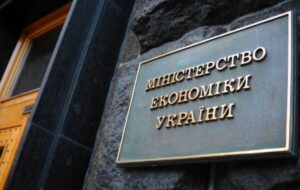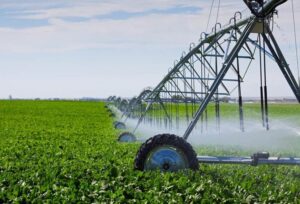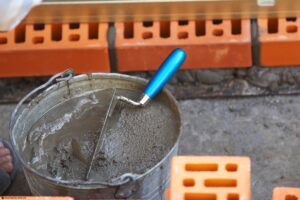
The real growth of Ukraine’s gross domestic product in 2023 may be up to 5%, but given the existing risks, the Ministry of Economy is still conservatively keeping the growth forecast at 2.8%, said Natalia Gorshkova, Director of the Department of Strategic Planning and Macroeconomic Forecasting of the Ministry of Economy.
“In those working calculations that we have, we as well as most experts who gave you forecasts, we see the possibility this year to reach a real growth of about 5%,” she said at the discussion “New macroeconomic forecast for Ukraine: what will be the exchange rate, GDP and inflation”, organized by the Center for Economic Strategy (CES).
At the same time, Gorshkova pointed out that the ministry is not going to change the current forecast of 2.8% yet, as the risks remain quite significant.
“We are part of the budget process, and we would not want to revise the base for budget formation every time, like on a seesaw,” added the representative of the Ministry of Economy.
She specified that earlier the ministry forecasted the growth of Ukraine’s economy this year at 3.2%, but in June it was adjusted to 2.8% due to the destruction of the Kakhovskaya hydroelectric power plant and pessimistic expectations about the future harvest.
“Perhaps we were hasty,” Gorshkova pointed out.
Speaking about longer-range forecasts, the Economy Ministry representative noted that, like most experts, the ministry hopes that the war will end in 2024, and this will stimulate an early recovery in the economy.
“Therefore, according to the current forecasts that we have, we expect 5% growth next year,” said the director of the Department of Strategic Planning and Macroeconomic Forecasting of the Ministry of Economy.
According to her, the main driver of growth is investment dynamics, while the nature of investments will change: military investments will be replaced by investments in infrastructure projects, in projects related to reconstruction, as well as supported by foreign investments, and the return of migrants from abroad.
As for inflation, which the Ministry of Economy expects this year at the level of 14.7%, Gorshkova noted that the forecast of the agency remains also conservative, as the assumption of the possibility of revision of the official hryvnia exchange rate at the end of the year remains.
As reported, the National Bank of Ukraine last week raised the forecast of real GDP growth in Ukraine in 2023 from 2% to 2.9%, but lowered it for 2024 from 4.3% to 3.5%. In addition, the NBU improved its inflation estimate for this year from 14.8% to 10.6%.

One of the key priorities for the development of the Ukrainian economy is to support agriculture through the development of irrigation systems, which will be dealt with by the Ministry of Economy from next year, Prime Minister Denys Shmyhal said.
“Completion of land reform, support for agriculture through the development of irrigation systems. This is the key project, and the Ministry of Economy will be responsible for it from next year, because this project is more about the economy, about increasing the GDP of our country,” he said during the UkraineInvest “MAKE in UA” forum in Kyiv.
As reported, last week Deputy Minister of Economy Denys Kudin at a conference in Kyiv called irrigation of land in southern Ukraine as one of the main infrastructure projects of the government. The first pilot project in this direction will start in 2022. It will cover 200 hectares of land in four southern regions of the country.
A similar opinion was expressed by Minister of Agrarian Policy and Food Roman Leschenko. According to him, the priority for his department in 2022 will be animal husbandry, gardening and land reclamation.
The restoration of the reclamation industry has become a national project until 2024. The Ministry of Agrarian Policy planned in 2021 to launch a pilot project to restore irrigation systems in Odesa, Kherson, Mykolaiv and Zaporizhia regions.

The introduction of antidumping duties on imports of Turkish-made cement may lead to an increase in prices for Ukrainian products by 50%, as well as lead to an increase in prices for repairs, housing, construction of infrastructure facilities, former state commissioner of the Antimonopoly Committee of Ukraine (AMCU) and founder of the League of Antitrust Ahia Zahrebelska said.
“Two years ago, the Ministry of Economy has already introduced duties on Russian, Belarusian and Moldovan cement, as a result of which the price for Ukrainian cement has grown to 40%. After the introduction of duties on Turkish cement with a simultaneous rise in the price for energy resources, the price may rise by another 50%, “she wrote on Facebook.
So, with an increase in cement prices, the budgetary costs for construction of roads, infrastructure projects under Big Construction will increase, the cost of real estate, the prime cost of which includes the cost of cement, as well as individual repair work using cement will increase, the expert said.
According to Zahrebelska, the share of imports in the Ukrainian cement market is only about 10%, but this creates competitive pressure on Ukrainian producers and restrains the growth of their prices. At the same time, the next introduction of import duties will allow large national producers to increase prices for their products.
The expert notes that the AMCU previously sent recommendations to PrJSC Kryvy Rih Cement, PrJSC Mykolaivcement, PJSC Podilsky Cement, and PrJSC Ivano-Frankivsk Cement, which occupy 90% of the market, not to raise prices in anticipation of antidumping measures. At the same time, Zahrebelska points to a significant increase in prices and profits of enterprises after the introduction of duties on imports of cement from Russia, Belarus and Moldova.
According to her, the League of Antitrust (NGO Union for the Protection of Competition and Consumers) has prepared an appeal to the AMCU regarding monopoly high prices for cement.
“The League of Antitrust is convinced that the Antimonopoly Committee can stop the manipulations if it starts investigating violations in the actions of the cement association members and stops the unreasonable rise in prices observed in recent years,” the organization said in the appeal.

Ukraine has entered the Advisory Centre on WTO Law (ACWL), the Ministry of Economy said.
“On August 28, 2021, the protocol on Ukraine’s accession to the agreement on the establishment of the ACWL entered into force, our country has officially become a member of this international organization and can use its services,” the ministry said on the website on Monday.
The Ministry of Economy noted that membership in the center provides an opportunity to receive free legal advice on WTO law and free training services, as well as legal assistance during the resolution of disputes within the WTO for a lower fee than a fee to law firms on a commercial basis (with a 40% discount to the established hourly base rate).
The Advisory Centre on WTO Law is an international organization founded in 2001 to provide legal assistance to developing countries. The Consulting Center includes 12 developed countries and 39 WTO members that are developing. The Verkhovna Rada ratified the corresponding protocol on June 15, 2021.

The decline in Ukraine’s GDP in January-April 2021 slowed down to 0.2%, according to an estimate by the Ministry of Economy.
“The Ministry of Economy estimates a slight decrease in GDP at 0.2% (a 2% drop in the first quarter of 2021, by 4.9% in the four months of 2020),” the ministry said in its review of economic activity in April this year, posted on its website.

Ukraine should regulate its role in the issue of grain policy in global markets, in particular, it concerns phytosanitary issues, new approaches to the use of pesticides and issues of traceability of grain origin, the Ministry of Economy said on Wednesday.
“Usually we adopt EU policy and implement it in Ukraine, including trade issues. But this is not always necessary. We shall develop our own position. In particular, my task, as chairing the International Grains Council, is to attract attention of global markets to the grain policy of Ukraine,” Trade Representative of Ukraine Taras Kachka said.
The Ministry of Economy said that on June 8 Kachka met with GAFTA Director General Jaine Chisholm Caunt and members of the organization’s council to discuss possible cooperation between Ukraine and the International Grains Council and GAFTA. The ministry called this meeting especially relevant on the eve of the beginning of Ukraine’s chairmanship in the International Grains Council.
“It is important to deepen the dialog between trade institutions, such as the International Grains Council, GAFTA, WTO, because finding a balance in international trade is directly related to ensuring global food security. We see more and more ties between the business community of Ukraine and international trade institutions and consider the development of this dialogue is key in our trade policy,” Kachka said.
The Ministry of Economy recalled that GAFTA (Grain and Feed Trade Association) is an international trade association headquartered in London, consisting of grain traders, brokers and other specialists in the international grain trade. Founded on November 17, 1871 it has over 1,900 members in 100 countries.